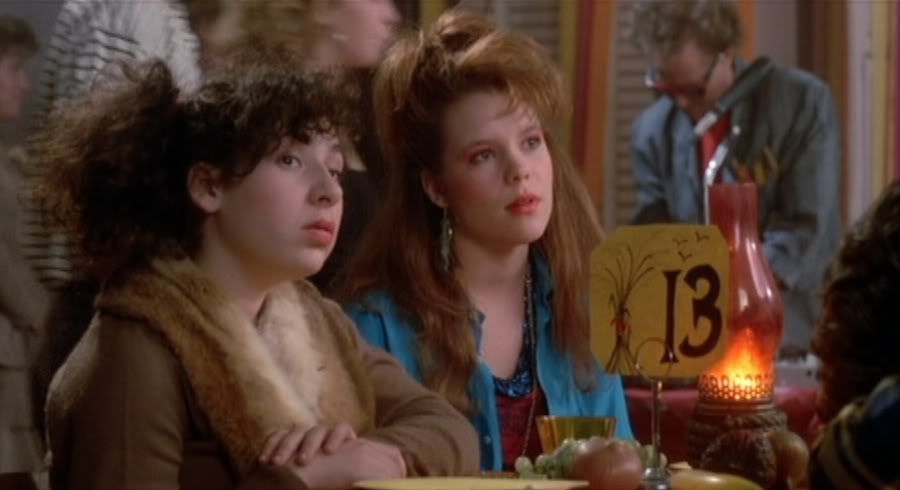Post by No Personality on May 6, 2012 11:03:19 GMT -5


So - I don't know about you, but - in the last year, I've become intensely wrapped up in the whole That Guy with the Glasses phenomenon. More than many others, I would say. To the point where... yes, I actually started mounting my own review video. Don't ask; less said, the better. Even though I think I'm quite the character, I just don't have the right technology. Not to mention, the more I learn about the video hosting service Blip-TV that allegedly pays people for making these videos, the more I'm convinced it would be a waste of my time to try. Anyway, there are several really fun and interesting reviewers on That Guy and my favorite is Lindsay Ellis, the Nostalgia Chick. Of course, nobody on the site is perfect and Lindsay seemingly gets the most flack. She's even been a source of some genuine controversy on the site, mostly for what I respect about her- deriving a good number of her opinions from being a feminist. Her opinions are given so strongly, that she can be the easiest reviewer on the site to disagree with. I was actually appalled by her take on The Worst Witch and surprised that she apparently, flat out, didn't get Earth Girls Are Easy (not that she admitted it, she actually had this take on the movie being flawed because Geena Davis's character was an airhead... which was the point of the movie- and a pretty harmless one at that). And she has turned in a few pretty stiff videos (the Sister Act review comes to mind). But overall, she's the best video producer on the site capable of mixing insight and entertainment (...when she's not trying to drown the video in skits).
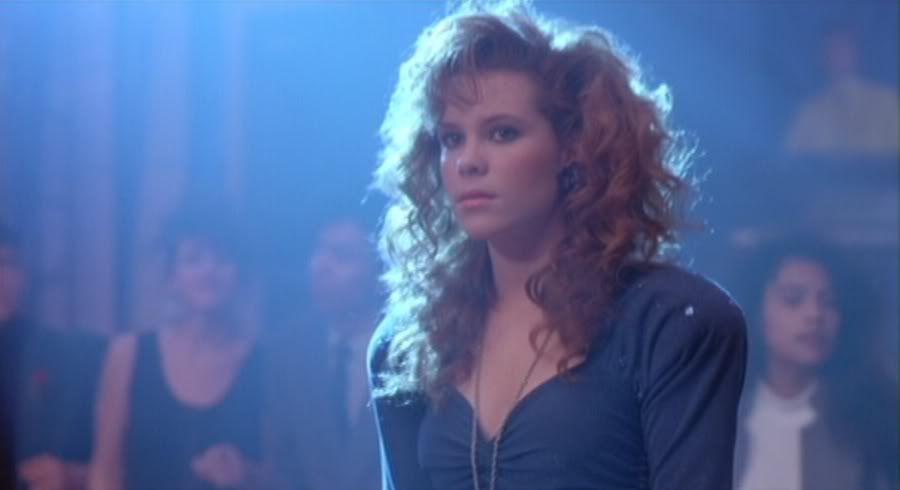
Anyway, one of her first and most addictively rewatchable reviews is Teen Witch. Why? Because it's the perfect target. Mocking it or tearing it to shreds wouldn't really hurt anyone. It has fans to be sure but almost everyone understands that it is an extremely cheesy or/and corny movie, dated right out of the box, pathetically trendy to the point of causing embarrassment for just about anyone involved - more on why later, and bafflingly episodic. Lindsay criticized the movie for having no plot and that I can respect the movie for. But this becomes a problem when, for example, to establish the seed of a relationship between Louise (character on DVD cover above) and Brad (the extremely hunky object of her affection), the movie stages what is practically a montage of different scenes one after another of Louise getting close to him. I don't know if this eats up 10 minutes screentime but I do know that none of what happens actually affects the rest of the movie. It's done basically so he knows who she is. The problem is that in one scene- he finds out she has a crush on him and she's embarrassed. Next scene? They're auditioning for the school play together and she's excited to be able to play this kinda seductive role. What happened to her nervousness? Anyway, next scene he hits her bike with his car and she's embarrassed again. Next scene- he's rescuing her from an angry mob by busting the lost Coke can out of a stubborn machine. Nervousness, again, depleted.

But I did say I can respect the movie for having no plot, and respect it I do. Why? Because if it has no plot, it doesn't have to explain why it suddenly dives head-first into a steamy fantasy sequence which doesn't specify whether the characters are just making out or about to have sex. Or why - Lindsay mentioned this one - the Prom dancing is so bizarrely choreographed. Hell, the movie could even have gotten away with "Top That" and "I Like Boys" if the songs had been good (more on those later). But it begins with what is clearly a music video inspired sequence uniting the romantic leads, it ends with yet another (sort of going for Dirty Dancing results without the same dramatic legwork), and there are even scenes where the music cues in and out as though this were Saved by the Bell. Lindsay might not like to accept it beyond the Meg Ryan 90's movie boom but there has always been a market for this kind of movie. What makes Teen Witch stand out is that it's basically a direct-to-video or Disney Channel made-for-TV movie in terms of writing, given a theatrical venue because Trans-World (the same folks who brought us Killer Klowns from Outer Space) thought its' trendy music and fashions would ensure its' profitability. In fact, considering how much Louise and her best friend Polly dress like the Tia character in Uncle Buck and how many characters look like they just walked off the set of Poltergeist III... it's understandable that they'd want to take a chance on the movie- cheap though it screams being every minute.
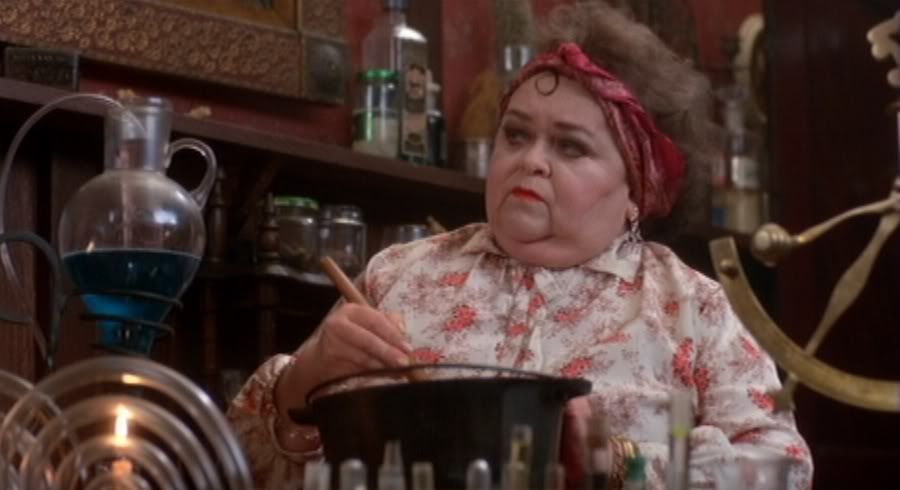
In short, this movie's worst enemy is 1990 and the few late 80's trends that were dying to break in the new decade early. (Best example I can give: how 80's does Edie Brickell's "What I Am" feel to you? It fits in perfectly next to Natalie Merchant, Sheryl Crow, and k. d. lang's early 90's material. Wait... just thought of a better one: Tom Petty's "Free Fallin'.") The only way anyone was going to believe "I Like Boys" and "Top That" were going to fit in was if you consider the similar mindfarting inherent in what-were-they-thinking culturally-challenged time-warped products such as Meet the Applegates and Mannequin Two: On the Move. This movie only had hope of success with a very particular age group and type of person (sheltered). I certainly remember it being an item of nostalgia from my childhood. Specifically, the years where I had a fascination with my best friend's older sister, the books she would read, and (make of this what you will) her stationary (I had a big thing about checking out other peoples' notebooks, book bags, pencils, etc back then). The only time I would have been able to catch Jem on TV (which I don't remember very well). Yet, what trendy late 80's things do I recall everyone else doing or talking about? George Michael's Faith. That's pretty much it. From my point of view, the world was definitely ready to spearhead into a less pink and hair-scrunchied phase of women's culture. Namely: the Julia Roberts years. Which actually detail the culture's evolution through the 90's very well (though I'll save that for another time).
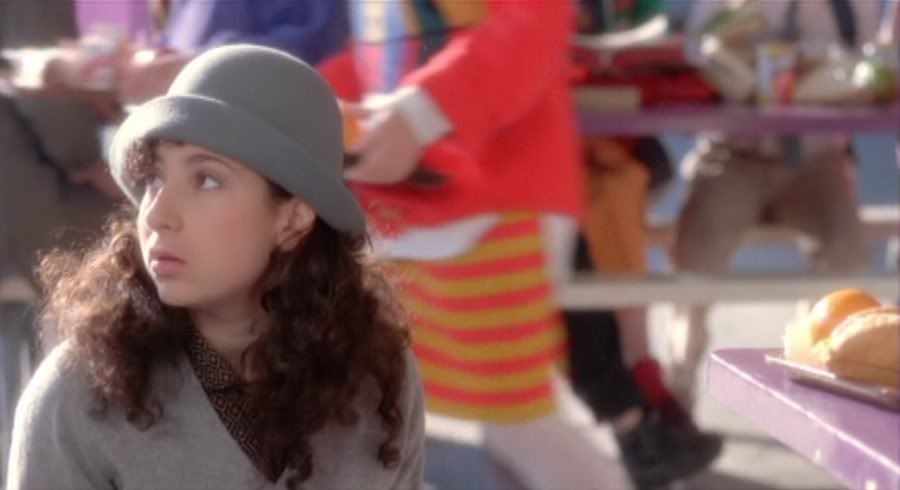
So, the fact that Teen Witch mainly exists in a time vaccuum has been rather kind to it. As I hope I suggested before, it has more in common with low budget films that had great success surfing on HBO and Cinemax. Where fans of action films and thrillers openly accepted saxophone-driven music scores and therefore, mini-movie companies kept cranking them out. In fact, were HBO and Cinemax even aware that Mtv existed? Mtv who knew about things like grunge, which probably wasn't even acknowledged in over 99% of the movies and shows that passed through those channels (or, if you can believe this, Frasier which freaking took place in Seattle). With pop songs a slight mix of Debbie Gibson with attitude and Kylie Minogue with guitars, the most current with the times element of Teen Witch would be its' pre-Vanilla Ice "hip" white rappers. I would call them a Beastie Boys rip-off but... they're more kin to sitcom characters rapping. Their rhymes be all family-safe like rappin' 'bout "high school blues" and bein' "king" of... something, but they only barely lack the kind of moral-value of most white rappers whose work was actually seen by the mainstream. Think: public service announcements. Or, for something more entertaining and less educational: furniture store commercials. I actually have nothing to say about "Top That" really, so let's get to a scene so horrifying that it might actually out-ghast Legally Blonde's "bend and snap" sequence, one of the worst scenes in all movie history.
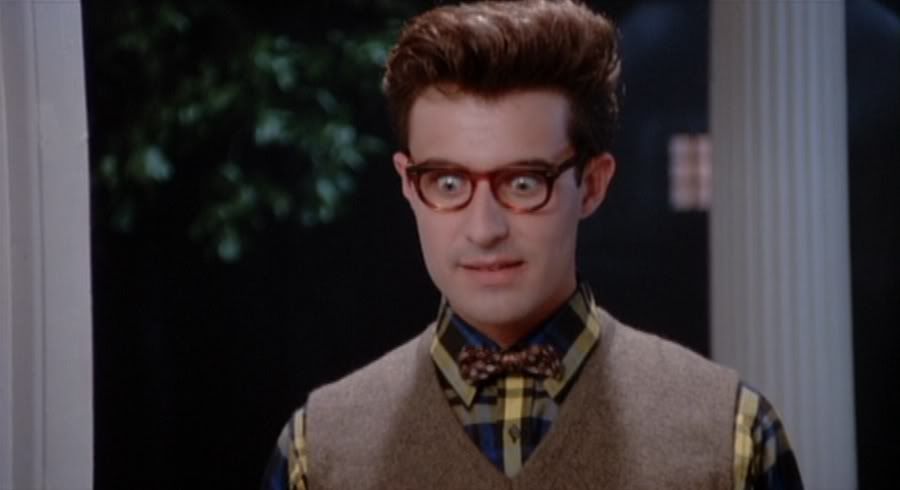
First of all, Lindsay was completely right: the movie loses its' entire grip on reality several times throughout. I'm willing to accept a certain amount of this. But, even I can't just go with the flow of a sequence that starts with the movie's brunette high school goddess (who actually reminds me a lot of Macaulay Culkin's cousins in Home Alone) intro'ing it by saying it's their new cheer. Um, maybe I don't know anything about how cheers are created but... there's nothing about the song's composition that is adaptable to becoming a cheer. Especially one that makes sense in the context of being an inspirational anthem to get the school's football team to perform well. It's just a bubble-headed track that the freakish dancing bimbos prove is groovable- though even then it looks like everyone shaking has had a lobotomy, some of the girls who are never named look like dancers hired just for this scene. And their ability to look at the camera and dance with no thought given to what they're actual dancing to scares me. Because, worse that the fact that the girls are like Saved by the Bell extras again looking at the camera, the music is awful. I don't think this song would exist without Rachel Sweet's superior theme to John Waters' Hairspray or Julie Brown's hilarious "Cause I'm a Blonde." And for some reason... this scene is padded with "goofy antics." No, apparently- the Grease-esque dancing wasn't insane enough. They needed synchronized blow-drying and cheerleaders pretending their towels are beards.
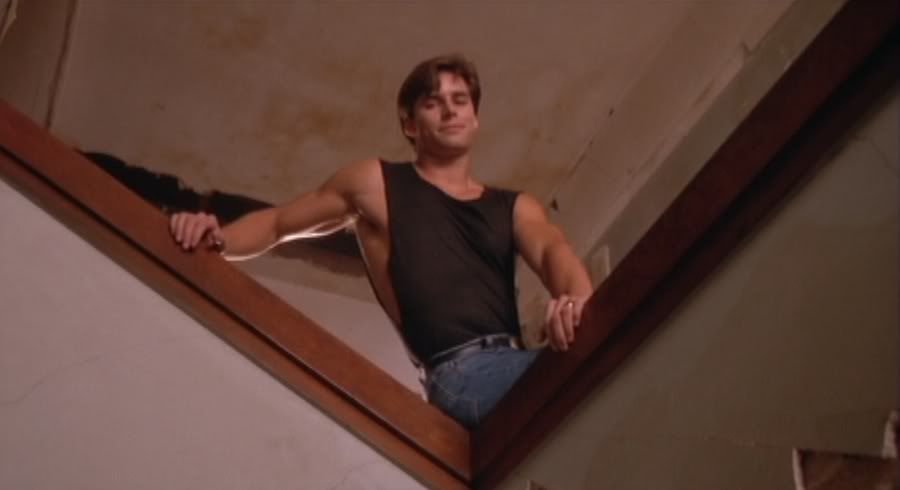
Yeah, that's... that's terrible and shocking. But the film does have good qualities. I'm hardly done detailing what doesn't work. But before I continuing doing that, I do want to highlight what I think really makes the people who like the film (which I do, mostly) remember it. As evidenced by the fact that this is not a standard plot, the movie leaves behind a lot of luggage trailing traditionally moral (modern and classic) fairy tales. Such as conflict. Or typical comeuppance for the in-crowd who tortures our misfit. The film does give us a fun little poke to the shallow, bratty cheerleaders though in the form of Louise's truth spell where she turns the most popular girls against each other. You've probably come across the "shut up, skank!" clip on YouTube. Anyway, Louise makes mistakes as she would in reality but the kind of conflict and bad results you'd be expecting have the same primary function and feel the same in most other movies. Whether they're used well or not. That's why it's refreshing to me that this movie does without most of that. One good example is what happens to Louise and Polly's friendship after Louise gains her powers. They split and... really, they never get back together. And the movie states this in what I consider to be fairly realistic terms. It doesn't waste time by puffing up the sadness or anger, Polly just tells the truth and Louise has to think about what it means. And it does affect her, eventually. Even if it doesn't bring them back together.
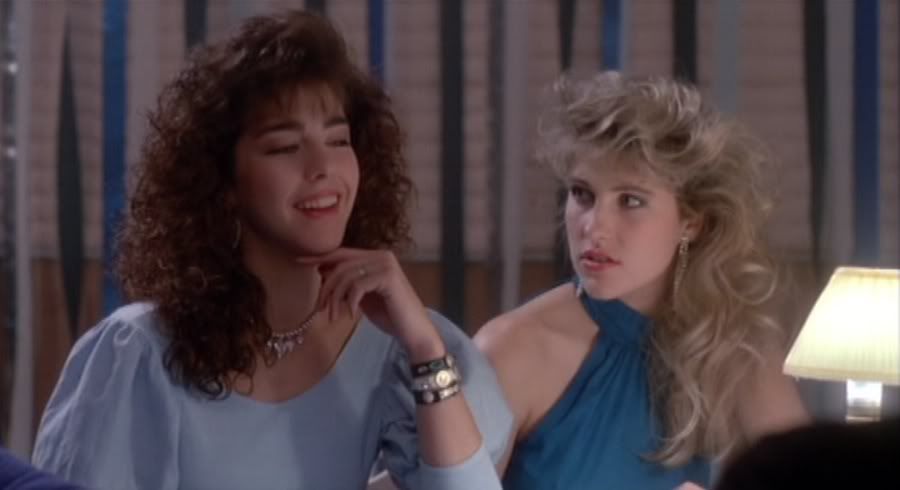
Another good example of something you've seen in other movies with this basic kind of plot that doesn't come here is when Louise actually hurts someone in her school with her powers. What you'd expect is something ala- The Craft, where one girl looks back on what's happened and feels guilty. Well... I guess there's a good chance Kiki didn't actually break her leg, just sprained it or whatever. She's not a doctor (and neither am I). You just have to be able to plug into the movie because it does appear to have some ideas it believes in and does at least a few things right. For example, why doesn't the movie seek to punish the would-be bitchy in-crowd girls? Because not only are they not really mean or evil (really, they're not), but Louise is just awkward and not really a full-on outcast. There's no serious bullying in this movie's high school and even though we know who in the school is popular and who isn't by what they wear or who they hang out with, the "nerds" are shown to be as judgmental as you expect the cheerleaders are when blonde and generic Perfect Girlfriend character (to Brad's Football Hunk-God), Randa, is when she shoots Louise a cold, "you'll never be one of us" glance in the hallway at the opening. This is realistic. At least it was for me when I was in high school. If you just look around, people will look back and send you signals. If you try to get involved, things change for you. This is probably the lesson Louise would have learned if she hadn't cast a spell to grant her instant popularity.
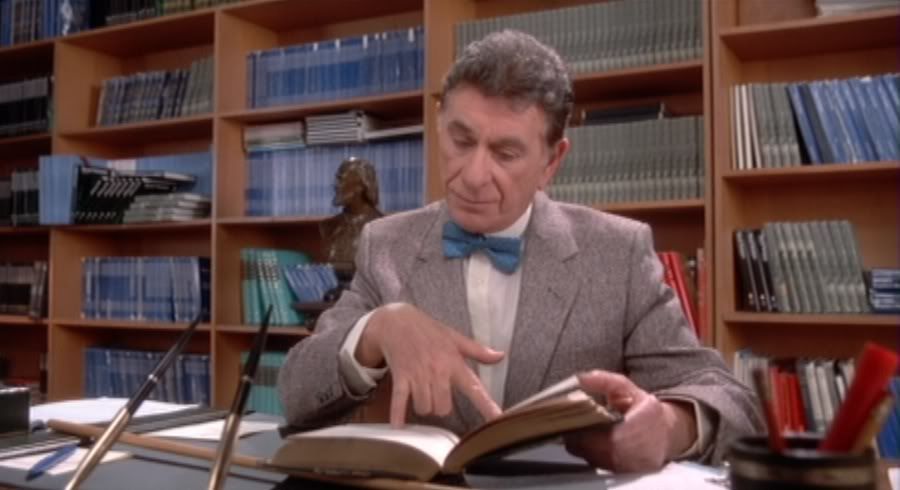
Now... and this is the last time I'm going to mention her, I promise; Lindsay's conclusion in her review was that the movie - fluff or not - is kinda irredeemably flawed on principle because at no point during her reign of popularity does Louise ever use her power and influence to do anything socially positive. Meanwhile, Brad now wants to be with her because she's popular. And... only because she's "the most" popular "girl"? This is of course a question the movie tries to answer. And, if you accept that her tossing the amulet to Serena at the end of the movie breaks the popularity spell, it does. This specific problem did affect Louise and she did worry about it. But the movie gives us what we really want, I think. Not pleasing everyone since that's always going to be impossible in movies. But the movie believed in this set-up as a fantasy. And Brad is not merely "uninteresting" as he is designed to be almost unreal. Is something you want always interesting because you want it? Anyway, I know I want Brad. I think he's a perfect cinematic object of fantasy. And the movie is just grown-up enough about what might have happened after Louise cast her spells, if people could cast spells which made things happen in real life. If the movie were only less silly and cheesy (and... well, I can't let this one go: her father - Darren II from Bewitched; ha - literally dispenses all the exact same advice Frederic Forrest gives his daughter in Valley Girl), it would work as a credible fantasy film.

Okay, now back to what doesn't really work (for awhile). Neither of these make me comfortable to say- but both of Louise's adult confidants are not giving what I would call great performances in the movie. Before meeting Poltergeist's mind-reading spiritualist - ha - Zelda Rubinstein, Louise finds her future in 35 years, Marcia Wallace (who, to many lower profile - and perhaps lower budgeted - projects is the poor man's Joanna Cassidy), and I'd say it looks like the director told her to act like a bug-eyed, perpetually grinning, crazy person. She speaks common sense-isms like a rational person but... never at the right moment. Out of nowhere, she counters Louise's concern about her bumbling existence with: "DARLING!! ALL THE WORLD'S A STAGE!!!" Um, what that has to do with... anything going on in the movie is one for the ages. Then, Zelda is... well, I have no doubt that she's a good actress since she's been good in most of the films I've seen her in. But here she's been called creepy (by... *ahem*, someone) and while I won't go that far, I will say she definitely seems predominantly self-serving between doing a dance after using Louise as a one-way cash register and using Louise to turn a frog into a pretty plain-looking soap opera stud. Anyway, (again, *someone* has charged that) the movie doesn't really know how to give the audience relatable situations. Well, I'll agree that the movie doesn't know how to write most of the supporting characters.
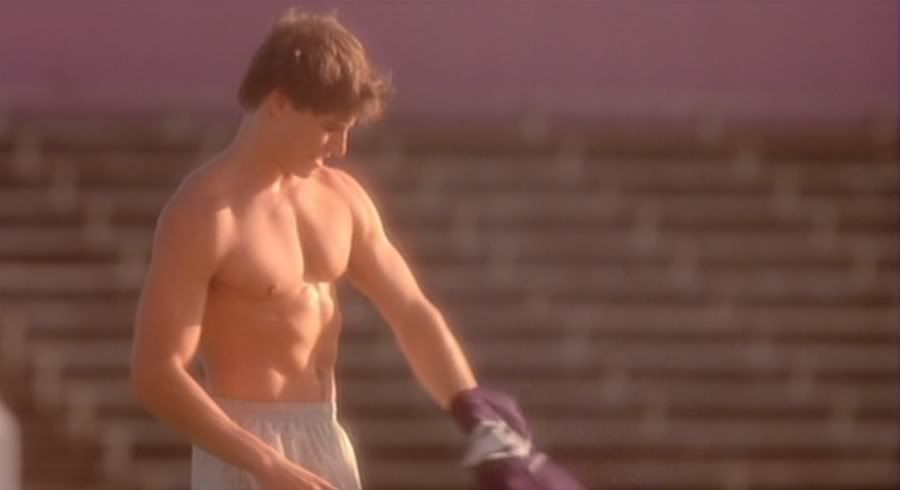
My favorite example of that is the stupid DJ at school dance who calls himself "Romando, you're favorite radio DJ." He's literally so obnoxious and dopey-looking that I had to reply with, "no, you're not. You're a piece of gum someone scraped off the underside of a desk. Or a shoe." He also has one of those great "darling, all the world's a stage"-quality WTF line; "alright, guys, grab your wallets 'cause here comes a slow song." Um... what the HELL does that mean??! The guys are supposed to pay the girls to slow-dance with them? The girls are going to try to rob the guys while they're dancing? This is the time to go get refreshments, and this school dance charges money for cookies and punch? Anyway, this guy wishes he were Teller. A more disturbing example is Louise's ultra-nasty, ultra-invasive and bitchy old English teacher, Mr. Weaver, who takes every opportunity to humiliate and personally attack Louise. Because...? Well, it's such an aggressive element in the movie when he's onscreen that one can't help but hypothesize that he does this because he's jealous of her for some reason. I'll stop there. At least long enough to question why her kinda-stereotypical Gross Little Brother (it's not trademarked but it still deserves all-first-letter-CAPs) acts pretty much the same way. He's not fat but eats like a pig and sets up his Hidden Chocolate Station (ehhh, same deal as before) underneath her bed where he curls up with her diary. Um... forget this as typical Teen Girl Embarrassment fodder and think about why any movie would bother to have guys using women's personal things to harass them.
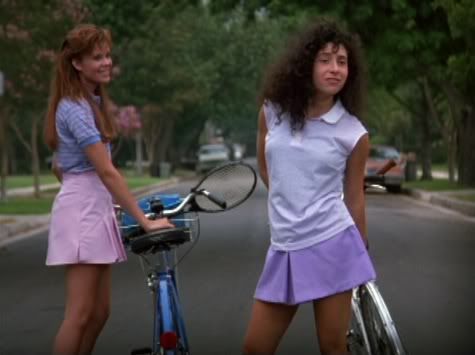
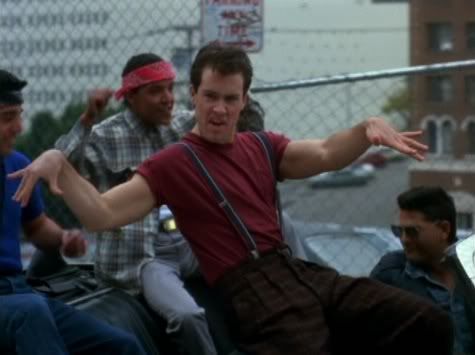
And if... anyone were to complain about the movie's idea of a nightmare blind date for Louise, they'd have a good case. Not surprisingly, I think the guy is actually really hot (in fact, if we were slow dancing- I imagine he'd be the one saying "no roaming hands"). The movie on the other hand has this code where sweater vests and glasses automatically equal Super-Nerd. The latter is absurd, since you don't see anyone but nerds actually wearing glasses. The former makes some sense. Just ask yourself if you'd ever choose to wear a sweater vest. Really; when have you ever? And I gather that his wolf-man-like hair is meant to be a big don't, though again it doesn't phase me. The bow-tie on the other hand... two words: Problem Child. As for the plaid shirt... well, fast forward to the Prom at the end, where one of the three guys to carry Louise are wearing plaid. Wolf-Boy make look a fright - for some inexplicable reason - but if you ask me, this movie doesn't actually have a fashion code when it comes to the "non-ostracized" high schoolers. They can wear anything (and do). When the movie's being serious though, it does seem to make a statement that you can't really tell a person by what they wear. There are several examples. I mentioned how judgmental Polly's other friends are. Brad is an enigma but, to go along with the obvious charm of his gorgeous looks, he doesn't have an actual mean bone in his body. Then, we have our Nightmare Nerd Date who turns out to be a real wild man (I'll spare you the personal fantasy elaboration this time- THIS time) and a bit of a pothead.
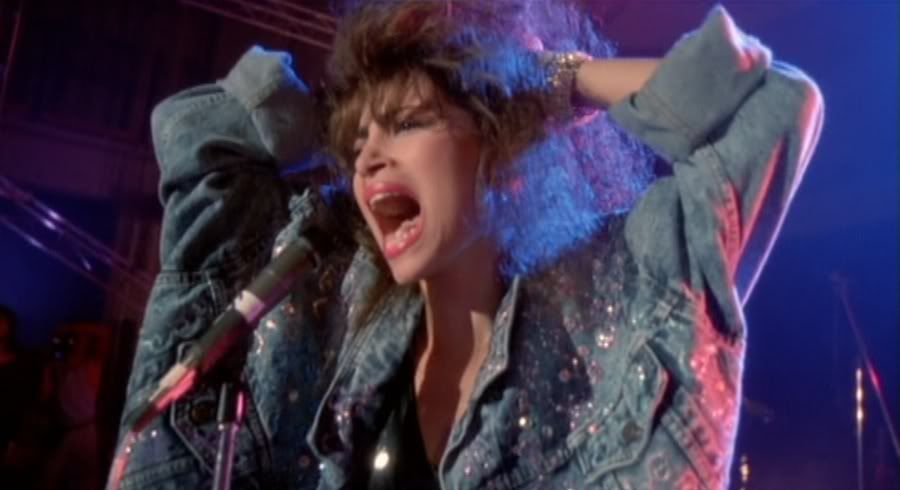
Randa and Kiki seem bitchy in a couple of scenes but, after Louise becomes popular, she discovers how approachable and sensitive Kiki is. She lets Louise in to a part of her that makes her sweeter than Polly (though, actually, we like that Polly is so blunt that she's merely a few points off from being Darlene - or Becky - on Roseanne). And, really, if Kiki doesn't actually know a person- why would she try to be nice to them? Were you always that nice to people you didn't know? (Honestly, I wasn't always nice and I doubt I have to tell you I was not in the in-crowd.) And then, there's Louise. Who proves that she had the "popular" girl inside her all along. And she's got a little bitch in her too. The touch I'm thinking about is when she walks into English class and everyone is clapping her arrival; when she passes the Italo rap hottie that Polly has a crush on, she slightly fondles his bicep with her finger. That's my girl! This is why I respect the ending so much. It has the best qualities of the movie as well as one of the worst wrapped up pretty tightly. *People* have criticized it for not really bringing most of the underlying story elements to a close. But... I think it does. By closing the door on them getting anymore attention. We've seen enough of Kiki and Randa, who we're spared getting any kind of dirty looks from when Louise totally steals her man. Don't tell me people really wanted to see her become some kind of villain. I think the point the movie might be making by mistake is that - without a guide - kids in high school try to fit roles. The rich kids seem to be pre-determined to become popular.
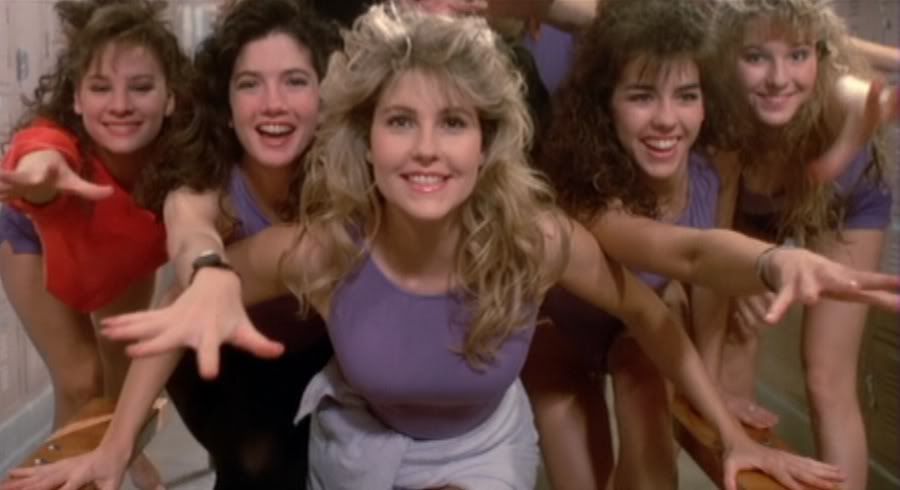
If I were able to make you buy that theory, this would make Louise a kind of integrater between the popular and the not-popular. By movie's end, that is. The perfect example of how that happens is a reminder that Polly now has the option to cash in her "Top That" cred and does when she dances with the Italian Stallion wigga rapper (it's hard to come up with just one term to criticize him, especially since he's every bit as hot as he is creepy; yes, strangely culturally out-of-touch people are usually creepy). After a scene like this, and Serena's pep talk that Louise can make anything happen, why wouldn't we believe that eventually Louise and Polly's friendship might be mended? Since their boyfriends are shown to be friends too and (I'm calling it) the line between popularity and non is now a lot blurrier. Another reason the ending really works for me is that it doesn't drive with dialogue. In fact, it's a lot easier to take than Valley Girl's ending- where the two romantic leads actually need to talk about a few things before riding off into the happy ending and never do, and that's a much better movie. We get everything we need from the music (listen to the lyrics of several of the songs throughout the movie- they love to drop hints about the characters; example- "All Washed Up" and the bastard English teacher) and the characters' body language. The music video format, which I mentioned earlier, is a good way of giving us information without using dialogue and a teen movie from the late 80's can easily incorporate this kind of thing into their framework. It was highly culturally relevant then.
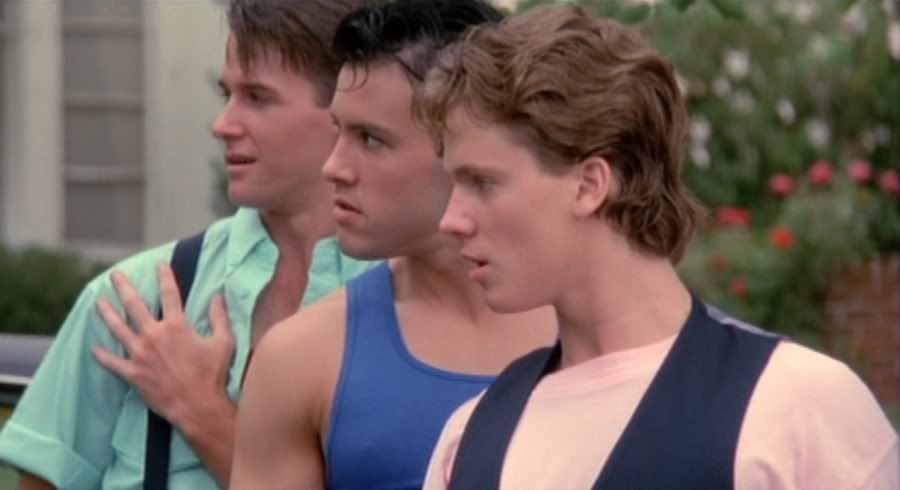
So, assuming that tossing the amulet gave Louise back her old life, with everything she's gained from her powers- her and Brad get to live happily ever after because of a real attraction. He says in his dialogue that while dating her because she's popular, he's realized she's the kind of girl he wants to be with because of who she really is. So, she only needed her magic to get to know people like Brad and Kiki. When she got to know them, they were real friends. Though in Kiki's case, it's again just like real high school and it doesn't exactly last. No confrontation takes place. If you're paying attention (and I'm not saying that everyone who dislikes the movie didn't), you know the movie doesn't need it. Real life has a lot of loose ends to it. But more relevant to the movie, Louise has a lot going on in her life. It's progress that she doesn't need to get bogged down every time something isn't perfect. In fact, it registers as a complete after-thought to Louise when her hoards of admirers don't seem to like her for who she is but instead for some illusive, obsessive idea that her being popular is something they all want for themselves. The movie is far from perfect. And Lindsay's review was very well-focused but it did leave a few important details out or themes / theories unexplored. Most of them negative aspects to the movie, actually. I think my slight fascination with it is due to the fact that it's more liked than you'd expect and never angrily trashed. It's treated the way it should be. Recognized for being harmless and enjoyed for being a compelling mess.
